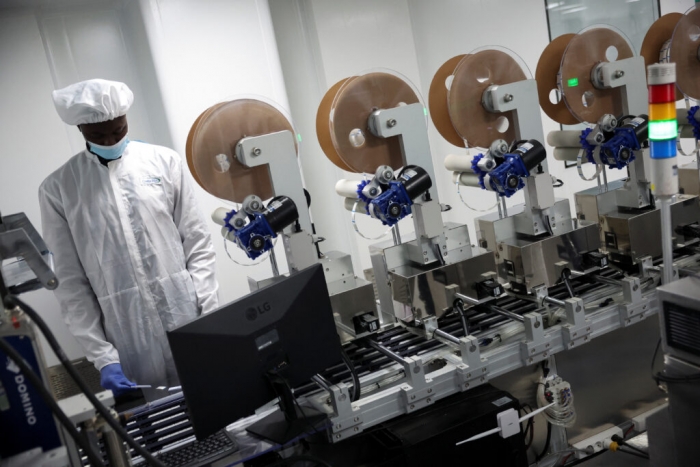Nigerian manufacturer Codix Bio Ltd plans to make millions of HIV and Malaria test kits at its new plant outside Lagos for the local and regional market to help fill gaps in the wake of cutbacks at U.S. donor agency USAID, a company executive said.
The United States, the world's largest humanitarian aid donor, has cutfunding for foreign assistance, half of which is
delivered via USAID.
The U.S. support to Nigeria, which reached $740 million in 2024 based on USAID data, is focused on preventing malaria and curbing HIV as well as delivering vaccines to local health centres across the country.
It is not yet clear how Nigeria will be affected by the cuts. The federal government has said it will raise funds to continue some of the programmes that donors supported.
Codix Bio general manager Olanrewaju Balaja said the company will roll out kits later this month from its plant in partnership with the South Korean pharmaceutical producer SD Biosensor and support from the World Health Organization.
The plant has an initial capacity to produce 147 million kits annually, but this can be expanded to over 160 million.
"From the statistics of what is supplied (by USAID and PEPFAR) for a specific programme year, and looking at what we have currently in capacity for Nigeria, we have enough capacity to meet the demand," Balaja told Reuters.
He said if the company scaled up operations, "we can go to West and Sub-Saharan Africa, including other African countries."
Nigeria has the highest burden of malaria globally, according to WHO, with nearly 27% of the global burden. The country also has the world's fourth highest burden of HIV, according to UNAIDS.
"The focus was for us to be able to play in the field of supply of rapid diagnostic test kits for donor agencies, which particularly USAID was at the forefront," Balaja added.
Reuters
